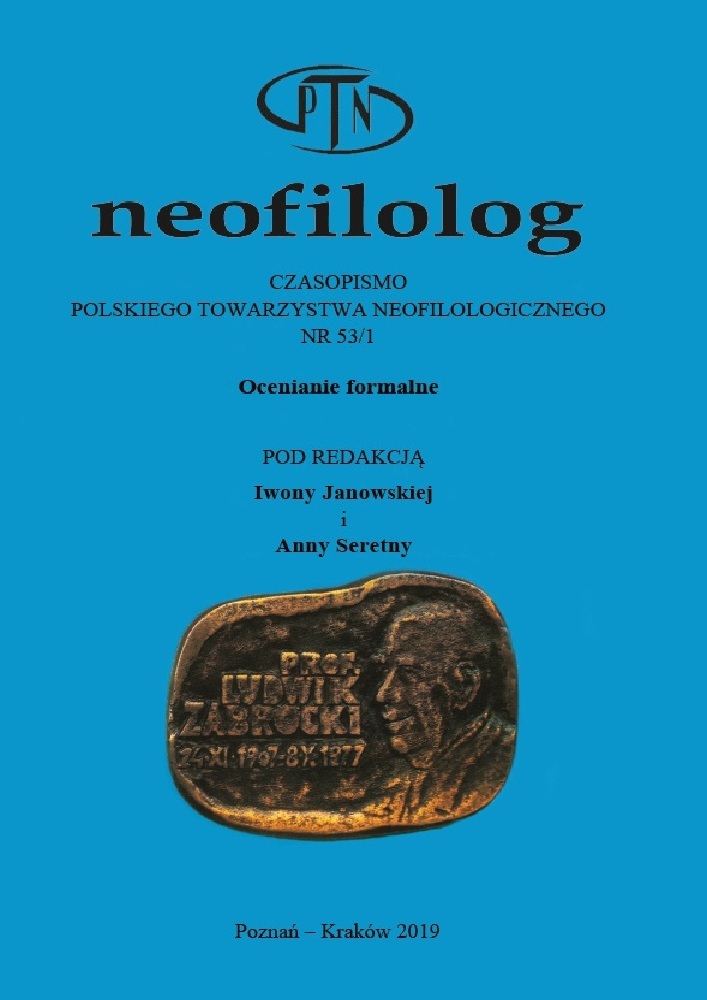Résumé
HSK (Hanyu Shuiping Kaoshi – 汉语水平考试) and HSKK (Hanyu Shuiping Kouyu Kaoshi – 汉语水平口语考试) are the official Chinese language proficiency examinations for foreigners developed by Hanban (Office of Chinese Language Council International) and their results are acknowledged by many employers and institutions. They, for example, facilitate admission to universities, open the way to variety of scholarships, etc. But do they genuinely reflect the actual level of students’ proficiency? To answer this question, the authors has analyzed the structure and content of HSK and HSKK as well as their theoretical basis; they also tried to relate the Chinese examinations to the CEFR (2001). On the basis of their research, the authors point to the difficulties that Polish learners encounter when taking these examinations.
Références
Li-Piszczek Q. (2011) Chińskie testy językowe w perspektywie europejskiej (w) Materiały z VI Międzynarodowej Konferencji Edukacyjnej, str. 1-8. Online: http://docplayer.pl/43797199-Chinskie-testy-jezykowe-w-perspektywie-europejskiej.html [DW 15.10.2018]
Papińska E. (2014), Rola mniejszości narodowych i etnicznych Chin w rozwoju turystyki (w) Krajobrazy rekreacyjne – kształtowanie, wykorzystanie, transformacja. Problemy Ekologii Krajobrazu, t. 27, str. 301-311.
Skwarko L., Wojtaś A. (2015), Pozatechniczne kompetencje absolwenta Politechniki Warszawskiej i ich związek z kształceniem językowym (w) „Języki Obce w Szkole”, nr 3, str. 54-57.
Szymczak M. (red.) (1988), Słownik języka polskiego. Warszawa: Państwowe Wydawnictwo Naukowe.
Wang R. (2014), 汉语作为第二语言能力评估现状与分析 (Status i analiza ewaluacji biegłości języka chińskiego jako drugiego) (w) „语言科学” („Nauka o języku”), nr 13, str. 42-48.
Zajdler E. (2010), Glottodydaktyka sinologiczna. Warszawa: Wydawnictwo Dialog.
Zhang J., Li P., Li Y., Jie N., Huang L. (2012), 对新汉语水平考试的新思考 (Nowe spojrzenie na nowy HSK) (w) „中国考试” („Chińskie egzaminy”), nr 2, str. 50-53.
NETOGRAFIA
http://www.chinesetest.cn/goKdInfoOrPlan.do [DW 16.10.2018]
http://cis.chinese.cn/Account/Proceduresfor?lang=en-us [DW 16.10.2018]
http://www.fachverband-chinesisch.de/sites/default/files/FaCh2010_ErklaerungHSK.pdf [DW 16.10.2018]
http://prawo.sejm.gov.pl/isap.nsf/download.xsp/WDU20180000261/O/D20180261.pdf [DW 15.10.2018]
Licence
© Monika Paliszewska-Mojsiuk, Anna Sroka-Grądziel 2019

Ce travail est disponible sous licence Creative Commons Attribution - Pas de Modification 4.0 International.
Auteurs :
Les auteurs de textes acceptés pour publication dans la revue Neofilolog sont tenus de remplir, signer et renvoyer à l'adresse de la rédaction, un accord sur l'octroi d'une licence gratuite pour les œuvres, avec obligation d'accorder une sous-licence CC.
En vertu de cet accord, les auteurs des textes publiés dans la revue Neofilolog accordent à l'Université Adam Mickiewicz de Poznań une licence non exclusive et gratuite et permettent l'utilisation de la sous-licence Creative Commons Attribution-NoDerivatives 4.0 International (CC BY-ND 4.0).
Les auteurs se réservent le droit de disposer librement de l'œuvre.
Utilisateurs :
Les utilisateurs d'Internet intéressés ont le droit d'utiliser les œuvres publiées à partir de l'année 2017 sous réserve des conditions suivantes :
- reconnaissance de la qualité d'auteur - l'obligation de fournir des informations sur la qualité d'auteur, le titre, la source (liens vers l'œuvre originale, DOI) et la licence, ainsi que l'œuvre distribuée ;
- sans créer d'œuvres dérivées - l'œuvre doit être conservée dans sa forme originale, p. ex. les traductions ou les interprétations ne peuvent être distribuées sans le consentement de l'auteur.
Tous les textes publiés sont soumis au droit d'auteur.
Autres :
L'Université Adam Mickiewicz de Poznań se réserve le droit à la revue dans son ensemble (mise en page, forme graphique, titre, conception de la couverture, logo, etc.).
.

